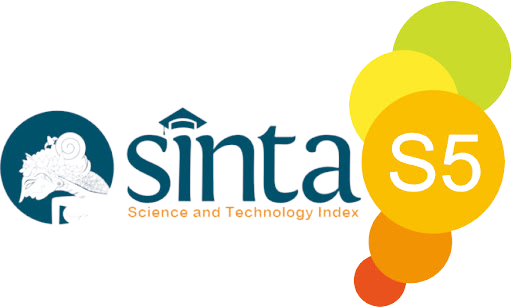Tourism Village Management Strategy Based On Sense Of Mission And Sense Of Commitment
Study of Community Empowerment in the Management of Teak Timber Hoarding into the Tourism Sector in Benculuk Village, Cluring District, Banyuwangi Regency
DOI:
https://doi.org/10.32528/sw.v6i2.414Keywords:
Tourism village,, Tourism sector, Law Number 10 of 2009.Abstract
This study aims to describe the management of a tourism village in the form of teak wood stockpiling and used as a tourism sector by the Perhutani of Benculuk Village by empowering the surrounding community based on a sense of mission and a sense of commitment. The approach used in this research is descriptive qualitative, and the method of data collection is in the form of interviews conducted with informants who have an interest in managing Djawatan Tourism Village. Analysis of the data obtained was carried out through data collection, data verification, data presentation and drawing conclusions. The results of the study show that the management of teak wood hoarding which is used as a Tourism Village in practical implementation is based on the ACTORS theory and Sense Of Mission and Sense Of Commitment with the aim of minimizing the unemployment rate of the surrounding community. Perhutani has a specific strategy for approaching the community in managing the teak wood stockpiling area so that it becomes a developing and advanced tourism village, so that the surrounding community becomes prosperous, lives happily, and avoids poverty
References
Arivitarta, A. (2019). E-Branding Majestic Banyuwangi Dari Lembaga Pariwisata Dan Kabupaten Banyuwangi Untuk Meningkatkan Kunjungan Pariwisata.
Ghani, Y. A. (2017). Pengelolaan Sarana dan Prasarana Pariwisata Berlandaskan Budaya di Jawa Barat. Jurnal Pariwisata, 4(1), 22-31.
Hermawan, H. (2016). Pengembangan Desa Wisata Terhadap Ekonomi Masyarakat Sekitar. Jurnal Pariwisata, 3(2), 105-117.
Hurotul‘Aini, W. (2019). Meningkatakan Kesejahteraan Ekonomi Masyarakat Sekitar Melalui Pariwisata Di Kabupaten Banyuwangi. Jurnal Sains Manajemen dan Bisnis Indonesia, 9(1), 14-19.
Istiyanti, D. (2020). Pemberdayaan masyarakat yang dilakukan melalui progam pengembangan desa wisata yang ada di Desa Sukawening. Jurnal Pusat Inovasi Masyarakat (PIM), 2(1), 53-62.
Komariah, N., Saepudin, E., & Yusup, P. M. (2018). Pengembangan Desa Wisata Berbasis Kearifan Loka masyarakat. Jurnal Pariwisata Pesona, 3(2), 158-174.
Peraturan Menteri Pariwisata dan Ekonomi Kreatif RI Nomor 12 Tahun 2020 tentang Rencana Strategis Kementerian Pariwisata dan Ekonomi Kreatif/Badan Pariwisata dan Ekonomi Kreatif Tahun 2020-2024.
Peraturan Daerah Kabupaten Banyuwangi Nomor 13 Tahun 2012 Tentang Rencana Induk Pembangunan Kepariwisataan Kabupaten Banyuwangi.
Peraturan Menteri Pariwisata Dan Ekonomi Kreatif Nomor 9 Tahun 2021 tentang Pedoman Destinasi Pariwisata Berkelanjutan.
Sarah Cook & Steve Macaulay. (1997). Perfect Empewermant. Jakarta: PT. Elex Media Komputindo.
Undang-Undang Nomor 10 Tahun 2009 tentang Kepariwisataan (UU Kepariwisataan).
Undang-Undang Nomor 41 Tahun 1999 pasal 46 tentang kehutanan, penyelenggaraan perlindungan hutan, kawasan hutan dan lingkungannya dapat lestari.
Undang-Undang Nomor 18 Tahun 2013 tentang pencegahan dan pemberantasan perusakan hutan.
Zakaria, F., & Suprihardjo, R. (2014). Konsep pemikiran pengembangan kawasan desa wisata yang berada di Desa Bandungan Kecamatan Pakong Kabupaten Pamekasan. Jurnal teknik ITS, 3(2), C245-C249.
Additional Files
Published
How to Cite
Issue
Section
License
Copyright (c) 2023 Sadar Wisata: Jurnal Pariwisata

This work is licensed under a Creative Commons Attribution-NonCommercial 4.0 International License.











